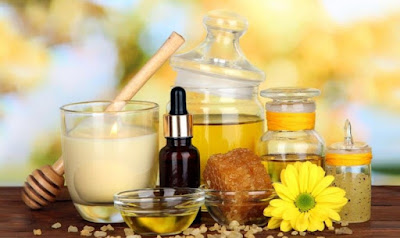1. Consume protein
Hair is primarily protein and strong, healthy hair comes from “the inside”, despite what the makers of shampoos and conditioners advertise. Make sure you are getting enough high quality protein. The daily recommended amount of protein for adult men and women is 6-6.5 ounces and 5-5.5 ounces, respectively. You should try for a variety of sources of complete protein. These are foods which contain all the essential amino acids, the protein building blocks. Here is a list of some foods that are complete proteins:
- Dairy products (eggs, cheese, milk, yogurt, etc.)
- Quinoa, a high fiber food with high levels of iron, magnesium and manganese
- Buckwheat, a grain that is high in vitamins and minerals
- Hempseed, which contains high levels of magnesium, zinc, iron and calcium
- Chia seeds, which contains high levels of omega-3 fatty acids
- Soy products, including tofu, tempeh and natto
- A combination of rice and beans. Rice is low in the amino acid lysine, which is important for healthy hair growth, whereas beans are high. In addition, beans have a low content of another amino acid, methionine, whereas rice is high. If you combine rice and beans, you have complete protein.
2. Get your vitamin B
B-vitamins are needed for healthy hair follicles and healthy hair growth. You should ensure that you eat a diet high in B-complex vitamins. Food options include:
- Leafy green vegetables, like spinach, parsley, mustard greens, romaine lettuce, turnip greens, beet greens
- Other vegetables, including broccoli, beets, turnips and bell peppers
- Legumes, such as lentils
- Calf and beef liver, which is high in vitamin B12
3. Increase omega-3 fatty acids
Omega-3 fatty acids have been shown to increase the numbers of hair strands. Increasing the amounts of omega-3 fatty acids in your diet may be a useful lifestyle change to help ameliorate hair loss. Good sources of omega-3s include salmon, mackerel, eggs, flaxseed oil, soybeans, chia seeds, walnuts, herring, sardines and bass.
4. Get your minerals
The only mineral that has been proven to be connected to hair loss is iron. While low zinc and low selenium have been implicated in hair loss, it is still unknown whether zinc or selenium deficiencies play a primary or secondary role in hair loss. Because the research on the relationship between minerals and hair loss and growth remains inconclusive, it's best that you are cautious in taking mineral supplements and follow any doctor's recommendations as well as manufacturer's instructions on the supplement's packaging. Wherever possible, try to get your minerals from your diet.
- Food high in iron include:
- Eggs
- Red meat (go for grass-fed beef or buffalo-- these are higher in omega-3 fats as well)
- Dark, leafy green vegetables
- Beans and lentils
- Liver
5. Foods high in zinc include:
- Seafood and shellfish, oysters
- Spinach
- Pumpkin, squash, sunflower seeds
- Various nuts
6. Avoid shampooing too frequently
Frequent shampooing can strip the natural oils from your scalp and hair. Frequent shampooing doesn’t really cause hair loss, but if you are stripping the oils from your hair, it can make the hair more fragile. Many professionals advise their clients not to shampoo daily, but instead recommend hair washing two to three times a week.
- Avoid shampoos that are loaded with chemicals as it's unclear whether these chemicals may be part of the problem causing hair loss in the first place. You may want to avoid using products with ingredients like sodium lauryl sulfate (SLS), parabens and ammonium chloride, especially if you have thin, fragile or treated hair.
7. Do not over-condition your hair
Conditioners can weigh down the roots of the hair and damage the hair follicles. Use a conditioner once or twice a week and avoid using conditioner directly on the scalp.
- Try a conditioner with natural ingredients. Good hair care products include those from Nature’s Gate, Babo Botanicals, WEN and Intelligent Nutrients.
8. Allow your hair to air dry
Let your wet hair air dry as often as you can manage. Blow drying your hair, especially on high heat, can cause further damage to and weakening of the strands.

EmoticonEmoticon